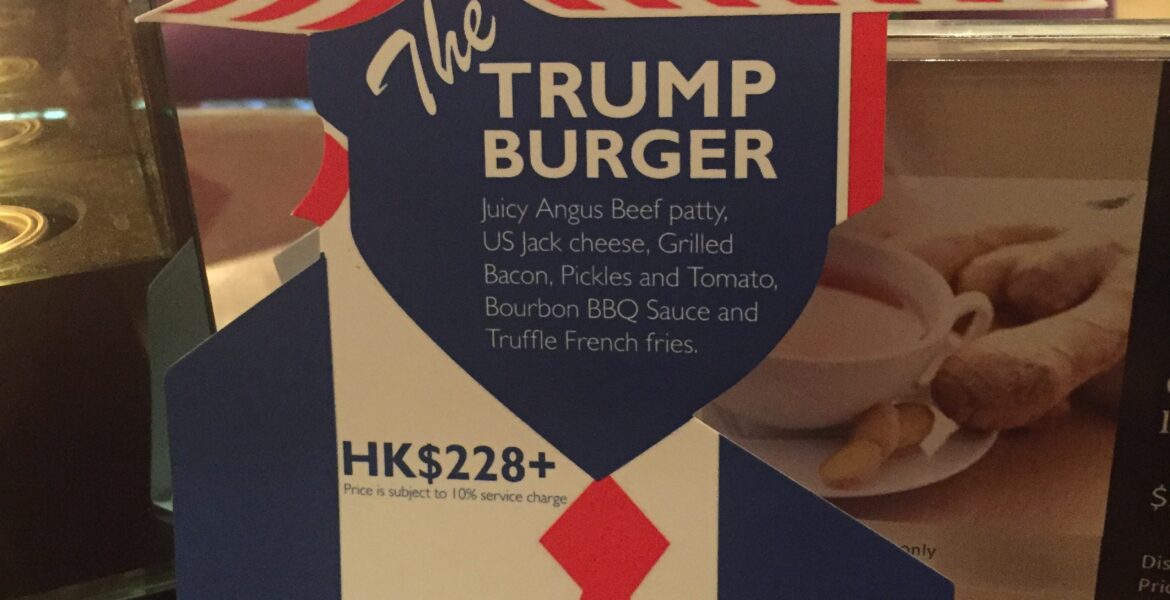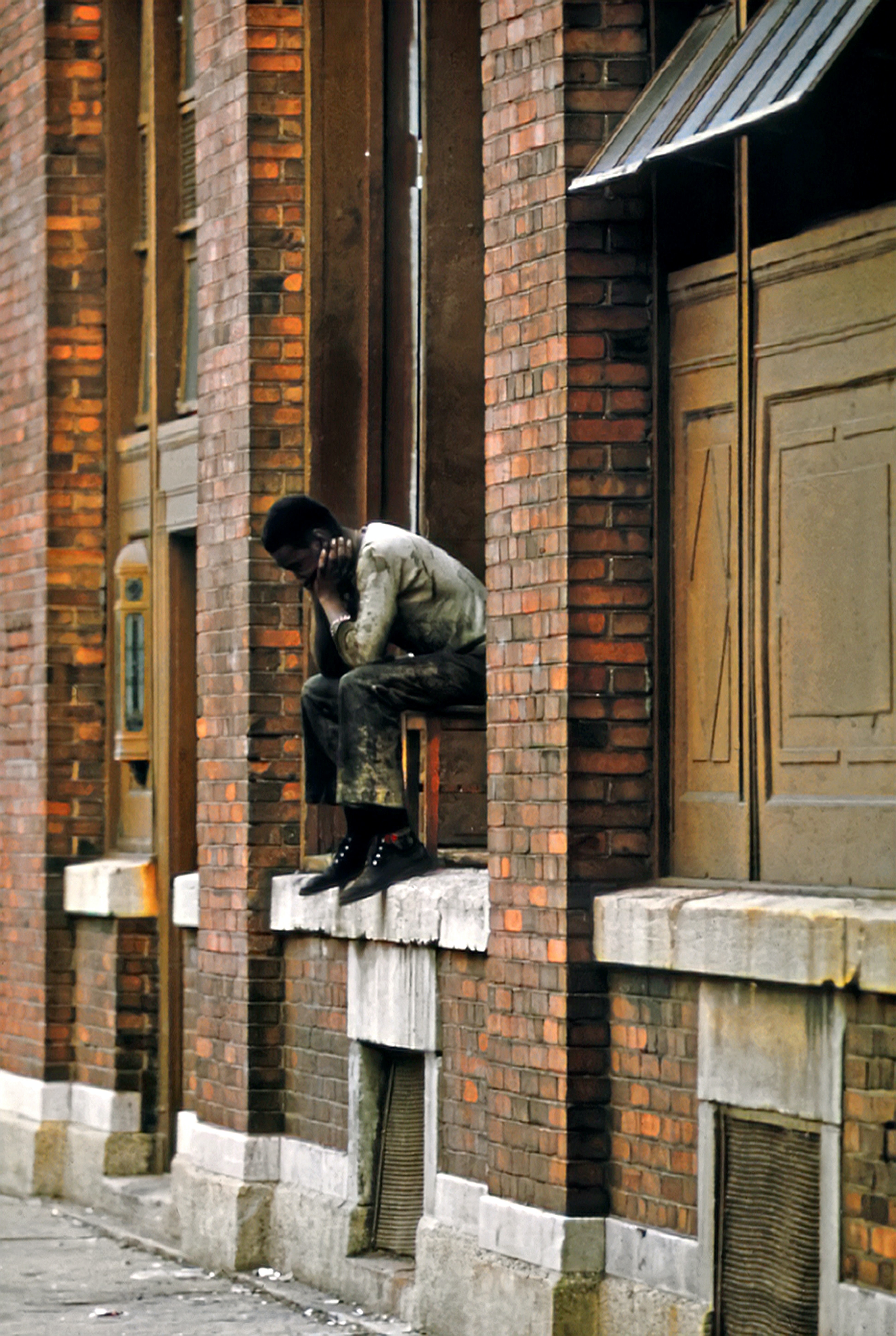Irishman Pat Cox, a former President of the European Parliament, has two words for it: “Buckle up.”
That is his short, sharp and sweet reaction to Donald Trump’s victory in the U.S election, one which has confounded many, including pollsters who got their predictions badly wrong.
The result was confirmed on Sunday when Arizona, the last of the so-called 7 swing states to declare their results, also showed in favour of Trump.
The victory added to the list of battleground states that Trump lost in 2020. With his victory in Arizona, Trump has now won all seven of this year’s battleground states. It underlines just how badly the pollsters got this election and also the sheer size of what has been a shocking defeat for his opponent, Kamala Harris.
Attention has now rapidly turned to issues such as Trump’s new team, his policy on Ukraine and NATO and domestic matters.
But the world is still also absorbing the quite remarkable outcome of the election and the fact that Donald Trump is now preparing for a 2nd term in office.
In the light of such seismic events, this website canvassed opinion from senior political figures. The feeling, in Europe at least, is generally gloomy about the prospect of another Trump presidency although others also say they are genuinely optimistic about what they hope will come in the weeks and months ahead.
Take this, from Europe’s business world, as an example.
BusinessEurope President Fredrik Persson has warmly congratulated Trump and spoke of the importance of a strong Transatlantic partnership.
He said the U.S. election is an opportunity to highlight the vital role European companies play in the U.S. economy, with EU investment in the U.S. totalling $2.4 trillion and our companies supporting over 3.4 million American jobs.
“Indeed,” he states, “the EU and the U.S. have the largest and most integrated economic partnership in the world.”
“Beyond economic ties, we share a commitment to upholding democracy and the rule of law, as well as having common views on addressing geopolitical challenges. The Transatlantic partnership must be strengthened and safeguarded through open dialogue and a forward-looking agenda for cooperation.”
BusinessEurope says it is ready to engage with the new U.S. Administration and work on concrete solutions that can drive economic growth, investment, and jobs on both sides of the Atlantic.
Some senior MEPs say they now eagerly await another Trump term in office, including the co-leader of the European Conservatives and Reformists Group in the European Parliament, Nicola Procaccini, who says Trump’s dedication and leadership have clearly resonated with Americans across the nation.
“We in the ECR family look forward to fostering strong cooperation and strengthening our ties across the Atlantic in the coming years, building pragmatic solutions together. This new chapter offers a unique opportunity to reinforce our political bridges, advance shared goals, and promote a future of prosperity.”
ECR co leader Joachim Brudziński congratulated Donald Trump on his impressive victory adding that “his commitment to the American people is clear as ever. We are optimistic about this new mandate and see it as an invaluable opportunity to deepen the special relationship that exists between the United States and Europe. We are ready to collaborate on a shared agenda that fosters stability, security, and prosperity on both sides of the Atlantic.”
Former dutch PM Mark Rutte, the new secretary-general of NATO — an organisation Trump has repeatedly threatened and called into doubt, said Trump’s “leadership will again be key to keeping our Alliance strong. I look forward to working with him again to advance peace through strength through NATO.”
But there are many whose reaction to Trump’s victory over Harris veers from the mildly concerned to all-out dread and fear.
Lord (Richard) Balfe, a former MEP, and member of the UK House of Lords, said, “It shows how far apart in values The USA and Europe are. Some good can come out of this if Europe learns to look after itself and stops depending on the US and begins to be responsible for its own foreign and defence policy.
Giles Merritt, founder of the leading Brussels-based think tank Friends of Europe, commented, “Unless the EU wakes up to this new Trumpian world and pulls itself together with the reforms and streamlining it has ducked and dodged, Trump’s trade warriors will pick European countries off one by one.”
Further reaction came from Ian Bond, deputy director of The Centre for European Reform, noted, “In Trump’s first term he had a number of ‘traditional’ Republicans in key positions around him, able to steer his foreign policy at least to some extent. It seems likely that in his second term there will be fewer restraints on him. Given his stated views on NATO and the EU, that poses serious risks for Europe’s security and prosperity”.
Spanish MEP Iratxe Garcia Perez, leader of the Socialist Group in the European Parliament, said, “Democratic and progressive forces must work together on a strong multilateral and transatlantic agenda which delivers for and protects our citizens. Europe needs to show leadership to face global challenges and work for peace and stability.”
Denis MacShane, a former Europe Minister in the UK, said, “Trump is the US president closest to European politics in history. So many of his populist themes – hostility to immigrants, putting nation first, casual racism, understanding of Putin, protecting US food production by tariffs, can be heard from the new generation of 21st century European leaders like Le Pen, Meloni, Brexit Tories, Orban, Kaczynski, Farage, Wilders, or political parties like VOX, AfD, Chega, Swedish Democrats, or Lega.
“Many European countries have a new media like Fox News or battalions of highly paid rightist influencers. Trump’s mother was born in Scotland, his grandfather in Germany. He is much more of a comrade in political arms with contemporary European rightists than is realised.”
Elsewhere, Willy Fautre, head of the Brussels-based Human Rights Without Frontiers NGO, said, “I would never have voted for Trump. Now a lot of increased taxes will be imposed on the importation of European products making our employment vulnerable, Europe’s defence will also be vulnerable, our military budgets will have to be increased and our social model will suffer from it.”
German centre right David McAllister, a senior Member of the European Parliament and chairs its influential Foreign Affairs Committee, has some misgivings.
Speaking to this site he admits that four more years of a Trump presidency will be a challenge for our transatlantic relationship, saying that Trump’s first term in office was “characterised by unpredictability, numerous personnel changes and an obvious discrepancy between what he said and what his administration subsequently did.”
The MEP added, “Nevertheless, a close cooperation between the U.S and the EU remains indispensable, not least because of the tense geopolitical situation. Even if our interests do not always coincide, no other international partner is as close to us as the U.S. Conversely, we in Europe remain important to the U.S because they cannot deal with the current global political upheavals alone. We should work together to proactively explore the overlaps in interests and transatlantic cooperation opportunities.”
McAllister adds, “Europe must become a partner at eye-level for the U.S. On foreign and security matters, we must do all we can to quickly improve our defence capabilities and strengthen the European pillar within NATO. We must remain transatlantic and become more European. This also means continuing our common support for Ukraine against the Russian war of aggression.”
When it comes to trade, he says the two sides should use the redesigned EU-US Trade and Technology Council (TTC) to find mutually agreed solutions to bilateral challenges, such as the American tariffs on steel and aluminium or the effects of the US Inflation Reduction Act.
“Both affect Europe negatively. The EU must be prepared to defend our interests vigorously, while developing our bilateral relations through dialogue. This means, we should take Mr Trump’s threats to impose sanctions of 10 per cent or even up to 20 per cent on all European products seriously and be prepared to signal early on that the European Union is equipped with the tools to respond to such measures.”
The centre right deputy goes on, “However, we will only do so as a last resort. Our main interest is to find common solutions to mutual challenges within the transatlantic relationship and beyond.”
Edward McMillan-Scott is a former senior British MEP who is among those who are genuinely fearful of what another Trump presidency may mean. He said, “I described this US election as portentous and it has that character and beyond. The fact that Donald Trump will control his government, the Senate and House as well as the Supreme Court and the armed services is frankly disturbing.”
“He is often gnomic and has a knack for surprise and luck. Relations with the EU are at three levels: the political, which he has derided and the military, represented through NATO – although it maintains a 24-hour situation room with the EU Commission – and trade, where he has threatened a tariff war. All of this makes for an uneasy time for Europe, whose diplomats will be searching for mechanisms of detente, a word much used during the Cold War for easing tensions,” said McMillan-Scott, one of the longest-serving Vice-Presidents of the European Parliament whose portfolio included EU/US relations during his last term.
On Trump’s election as the 47th President, Sir Graham Watson, a respected former Liberal group leader in the EU Parliament, is also filled with dread, saying, “America’s vote shows that countries continue to pull apart when the challenges to humankind urgently need people to pull together.”
“On climate, on peace building and on the trade which creates wealth a second Trump Presidency threatens to damage us all. The case for Europe to unite further is as strong as ever.”
His concerns are shared by German Greens MEP Daniel Freund who notes, “All those who say we made it through 4 years of Trump before underestimate what is happening. Not only is Trump back in the White House. They are winning senate and house as it seems. They already have a solid super conservative majority on the bench. And this time they have a plan with project 25.”
He doesn’t mince his words: “I fear for American democracy. I fear for Ukraine. I fear for European security and trade.”
Seasoned EU observer Paul Taylor, a former Reuters bureau chief in Brussels, said, “There is nothing but bad news for Europe in Donald Trump’s victory.”
He adds, “The only question is just how bad it will get. Europeans stand to suffer strategically, economically and politically from his America first policies, as well as from his unpredictability and transactional approach to global affairs. The undermining of NATO , the emboldening of illiberal nationalists everywhere, a transatlantic trade war, and a battle over European regulation of US social media platforms, AI and cryptocurrencies are just some of the major risks of a second Trump presidency. The impact of a second Trump presidency on Europe’s internal politics may be just as damaging as on trade and international relations. One veteran former EU official said Trump would not only embolden national populist leaders like Hungary’s Viktor Orbán, Slovakia’s Robert Fico and Serbia’s Aleksandar Vučić to form a sort of “illiberal internationale”, but his influence could also pull mainstream European conservatives further to the right on migration and gender issues, weakening Europe’s liberal values. Given such a bleak outlook, the EU and the UK ought to be proactively preparing for the worst, and moving closer together to defend their many common interests and values.”
“Sadly, there’s little sign of that in the timid foreplay between the two so far,” adds Taylor, a senior visiting fellow at the European Policy Centre.




